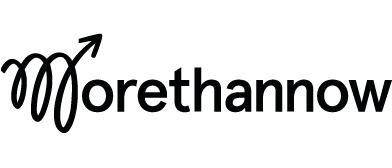Knowing you don’t know: the only way to change behaviour.
I met one of my heroes recently - an Ivy League professor and one of the world's leading behavioural scientists. In the hour we spent together, she used the words, 'I don't know' at least four times. Not in a throwaway, humble-brag, ‘but here are all the answers' way. Just straight-up, eye-to-eye, 'I don't know.
“She didn’t mean there wasn’t a way forward. She meant that if we wanted to find it we’d need to roll up our sleeves...”
The need to change behaviour is at the heart of so many problems in the workplace, from performance to collaboration to inclusion. More often than not, we just don’t know what to do about it. But we shouldn’t be ashamed or hide that reality away. In fact, we should turn it into a superpower.
Let’s say, for example, your gender pay gap hasn’t reduced this year and your CEO wants you to sort it out pronto:
You could meet a big problem with a big answer, and roll out a massive development programme to help women accelerate up the ranks. All your competitors are doing it, people seem to like away-days and it will show your CEO you're taking decisive action.
You could tell your CEO you don't know what to do. Because you don't know why or how women are being held back beyond guesswork, and you've got a whole load of things you could do, but no clue which will return the most on your time and investment.
“Ignorance can be bliss or a superpower - the difference is whether you hide away, or face it head-on and experiment!”
Number 1 is not a real answer. It's a mirage; an illusion; an invisibility cloak for an issue that deserves better. Number 2 might give you palpitations in the boardroom but it’s the first step to effective behaviour change. It asks for bravery and an approach that might feel strange:
You define the problem through organisational data, qualitative interviews and a review of academic literature about gender at work.
You diagnose some clear pain points, finding gender stereotypes seem to influence the way you assess for leadership potential and plan for succession. Your literature tells you that unconscious bias training is a deeply ineffective answer to this problem, so you identify three alternative interventions that have shown promise in other contexts. You re-model them for your organisation.
You design a controlled experiment to evaluate the effectiveness of your interventions against specific behavioural outcomes. You enlist a statistician to evaluate the significance of your results.
Two fail but one works, and in some small way you've been able to improve the workplace experience for your female colleagues. You prepare for roll-out to the rest of the organisation, with a quantifiable confidence in the difference you'll make.
Your work won’t have eliminated your gender pay gap, but it's a meaningful, repeatable start. Like so much effective behaviour change, it all begins with saying ‘you don’t know’, clearly and unashamedly. Because that’s the bravery that leads to three more words with even greater power and potential:
“Let’s find out.”
